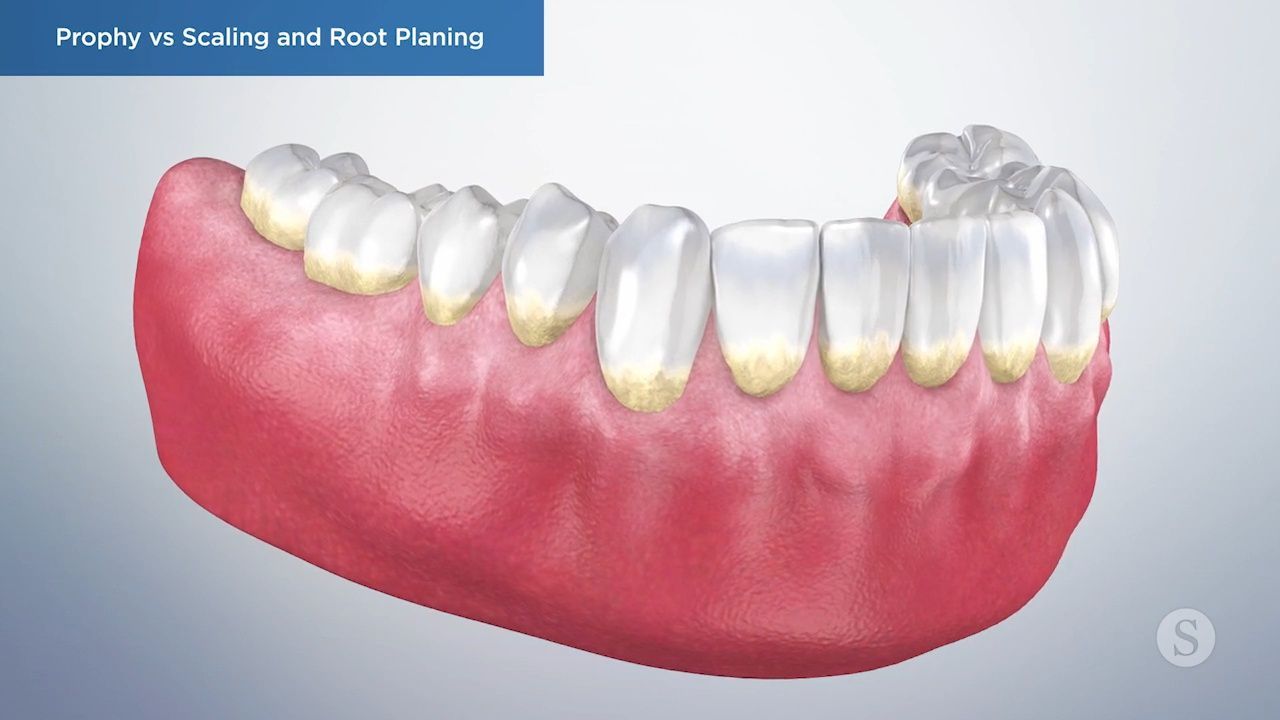Scaling and Root Planing
Scaling And Root Planing

Reclaim Your Oral Health
Why choose Dr. Dayna Cassandra and Associates for scaling and root planing?
Scaling and root planing, often called a “deep cleaning” is one of the most effective, non-surgical ways to treat gum disease before it becomes severe. Scaling and root planing cleans between the gums and the teeth down to the roots.
It is an essential treatment for patients with gum disease, maintaining oral health and preventing more severe dental issues. At Dr. Dayna Cassandra and Associates, we prioritize your comfort and safety while utilizing innovative techniques to keep your gums and teeth in optimal health.
Serving Patients Across Bergen County, NJ & Rockland County, NY
At Dr. Dayna Cassandra & Associates, we proudly provide exceptional general and cosmetic dental care to patients in Paramus, Westwood, Washington Township, Oradell, Woodcliffe Lake, Parkridge, Montvale, Maywood, Hackensack, River Edge, Fair Lawn, Allendale, Ridgewood, HoHoKus, Waldwick, Saddle River, Upper Saddle River, Ramsay, Mahwah, Teaneck, Englewood, Alpine, and throughout Bergen County, NJ and Rockland County, NY. Your smile is our priority, no matter where you are!
Scaling and Root Planing at a Glance
- Purpose: Treats gum disease and removes plaque and tartar below the gum line
- Benefits: Improves gum health, reduces inflammation, and prevents tooth loss
- Duration: Typically takes 1-2 hours, depending on the extent of the treatment
- Downtime: Minimal; most patients can return to their daily activities immediately
- Results: Healthier gums and reduced symptoms of gum disease
Get to the Root of Gum Disease
What is scaling and root planing?
If you have gum disease or gum pocketing, the gum pockets around the teeth will have deepened, allowing tartar deposits to form under the gum line. Scaling is basically the process of removing dental tartar from the surfaces of the teeth. Root planing is the process of smoothing out the root surfaces and removing any infected tooth structure. Careful cleaning of the root surfaces to remove plaque and calculus (tartar) from deep periodontal pockets and smoothing the tooth root to remove bacterial toxins will help ensure that your gum disease is controlled.
The inner lining of the pocket is also debrided so that new healthy fibers can attach to the cleaned root surface, thus reducing its depth. Reduced pockets are easier to clean at home, making your home care efforts much more effective.
If you have gum disease or gum pocketing, the gum pockets around the teeth will have deepened, allowing tartar deposits to form under the gum line. Careful cleaning of the root surfaces to remove plaque and calculus (tartar) from deep periodontal pockets and smoothing the tooth root to remove bacterial toxins will help ensure that your gum disease is controlled.

Trusted Care in Paramus
What is the scaling and root planing procedure like?
On the day of the procedure, your dentist will ensure you are comfortable and relaxed. They may administer a local anesthetic to minimize potential discomfort during the treatment. For the scaling step, they use specialized instruments to thoroughly remove plaque and tartar from the surfaces of the teeth, including beneath the gums. During root planing, they will smooth out rough areas on the roots of the teeth to encourage the gum tissue to heal and reattach. The procedure typically takes 1 to 2 hours, depending on the cleaning needed.
Maintain the Integrity of Your Smile
What conditions do scaling and root planing address?

Scaling and root planing primarily address gum disease, including gingivitis and periodontitis. Gingivitis is the term for the early stage of gum disease. Symptoms include redness, swelling, and bleeding of the gums.
Periodontitis is a more advanced stage of gum disease that leads to gum recession, tooth mobility, and eventually tooth loss. By deep cleaning the teeth and smoothing the roots, scaling and root planing encourage the gums tissue to reattach to the teeth to prevent further progression of gum disease.

Turn Your Dental Health Around
What are the benefits of scaling and root planing?
Scaling and root planing is essential for reversing gum disease progression and preventing tooth loss.
- Improved Gum Health: Reduces gum inflammation and helps gum tissue reattach to teeth.
- Prevention of Tooth Loss: Addresses gum disease before it progresses to tooth loss.
- Reduction of Bad Breath: Helps eliminate the bacteria causing persistent bad breath.
- Enhanced Oral Health: Prevents the buildup of plaque and tartar, contributing to overall oral hygiene.
Expert Guidance, Care, and Support
Am I a candidate for scaling and root planing?
During your initial exam, your dentist will look for signs of gum disease, such as swollen, bleeding, or receding gums. Scaling and root planing is typically indicated if you have gum pockets deeper than 4 millimeters around your teeth. In some cases, patients with advanced periodontal disease benefit from this approach. In other cases, a more extensive treatment might be required. Your dentist will evaluate your medical history to ensure the procedure is safe for you.
Helpful Hints to Keep in Mind After Your Procedure
Scaling and Root Planing Recovery
Scaling and root planing do not usually cause much discomfort, but you might experience some soreness afterward since deeper regions under the gums have been cleaned. Your teeth may become more sensitive to temperature, and bleeding may occur for a little while after your procedure.
Over-the-counter painkillers, such as ibuprofen, work very well to alleviate discomfort, as do ice packs applied to the outside of the face around the treated area. Brushing and flossing must be done more gently to avoid aggravating any bruised or tender gum areas. We'll show you the best methods to clean your teeth during this time.

Invest in the Future of Your Smile
Scaling and Root Planing Results
You should see improvements in your gum health within a few weeks after the procedure, including reduced gum inflammation, healthier gums, and less plaque and tartar buildup. Maintaining good oral hygiene and regular dental check-ups are essential to keeping your gums healthy in the long term.
Scaling and root planing is a simple procedure that can work very well to stop gum disease. If you maintain good dental care after the procedure, the progression of your gum disease should stop, and your gums will heal and become firm and pink again in no time!

Scaling and Root Planing
Frequently Asked Questions
Gingivitis, the earliest stage of gum disease, is often reversible with timely and effective treatment. Regular cleanings and diligent home care can restore gum health to normal levels.
Periodontal disease, which includes both periodontitis and advanced stages of gum disease, can be managed and its progression slowed down, but it may not be fully reversible, especially in advanced stages. Treatment aims to control the disease, prevent further damage, and improve your oral health.
Scaling and root planing typically take 1 to 2 hours, depending on the extent of the treatment required.
Most patients experience minimal discomfort during the procedure, especially with the use of local anesthetic. Any post-treatment sensitivity is usually mild and temporary.
You can generally resume your normal activities immediately after the procedure. Some patients may experience slight discomfort or sensitivity.
The frequency of scaling and root planing depends on your oral health needs. Your dentist will recommend a schedule based on your specific condition.
Maintain excellent oral hygiene and follow any specific aftercare instructions provided by your dental team to ensure optimal results.
Scaling and root planing can effectively manage and improve gum disease, but maintaining good oral hygiene and regular dental visits are crucial for long-term success.
In some cases, your dentist may prescribe antibiotics if there is a significant infection. Our dental team will provide guidance based on your individual needs.
Regular brushing, flossing, and routine dental check-ups are essential for preventing gum disease. Your dentist will provide personalized recommendations to maintain your oral health.
If you experience severe or prolonged pain, contact our office for guidance. While mild discomfort is normal, severe pain may require further evaluation.



